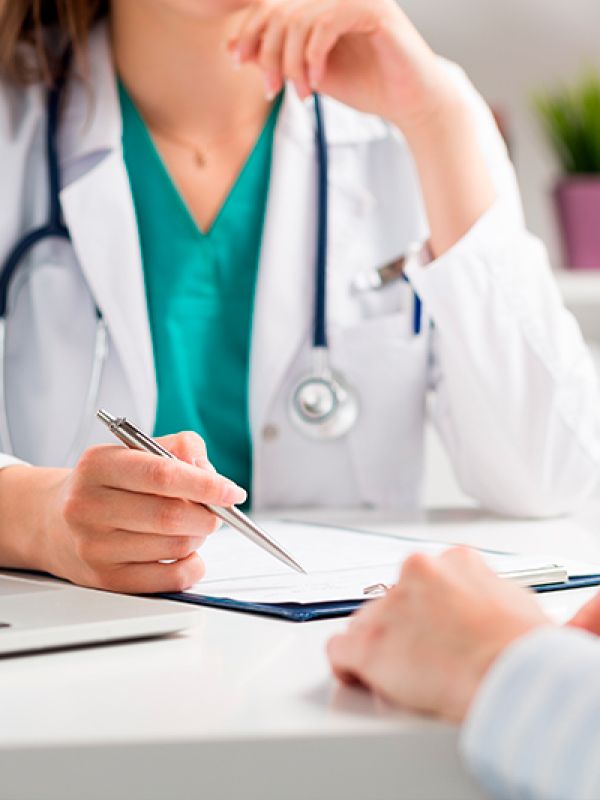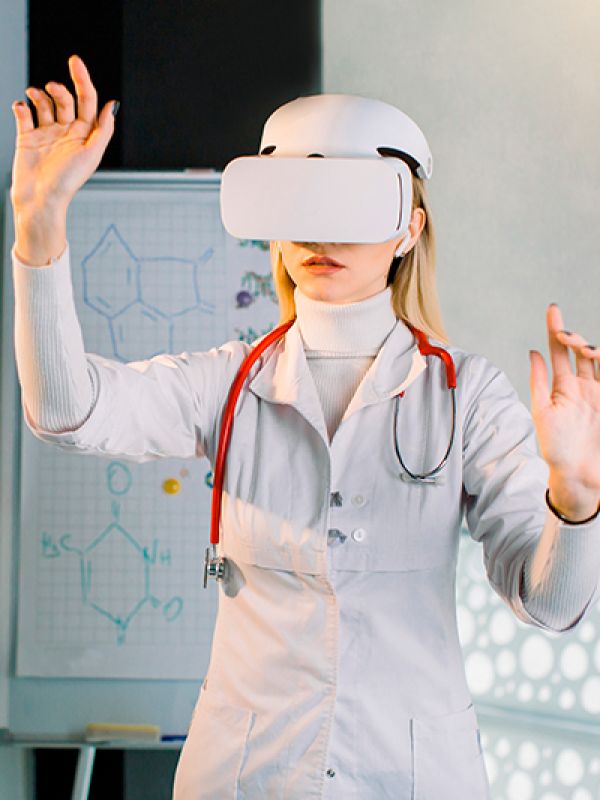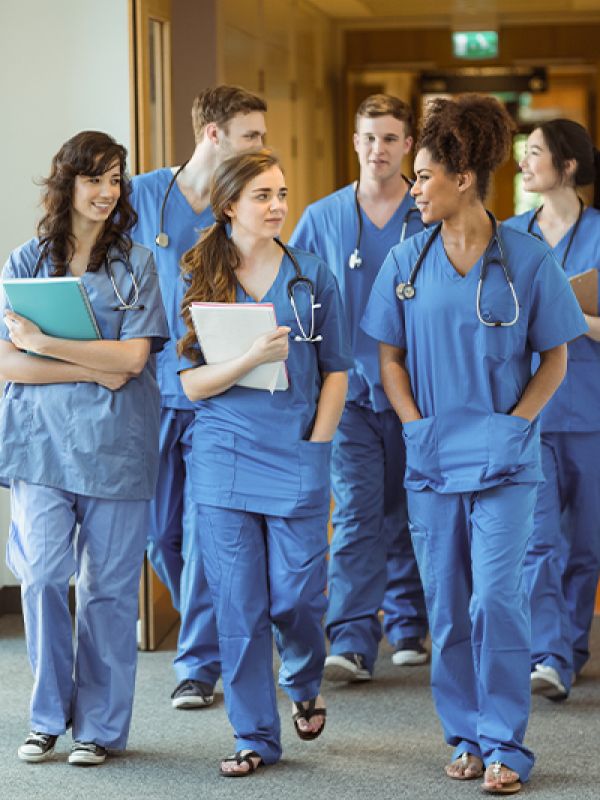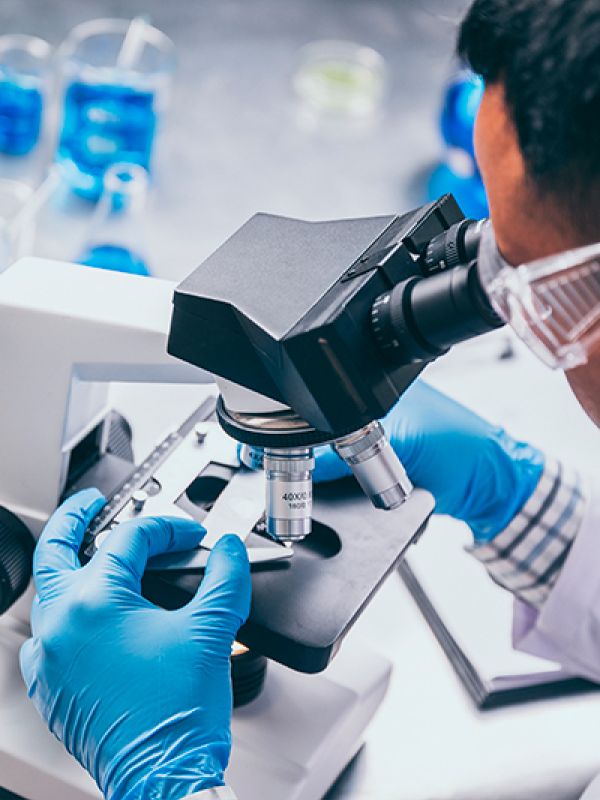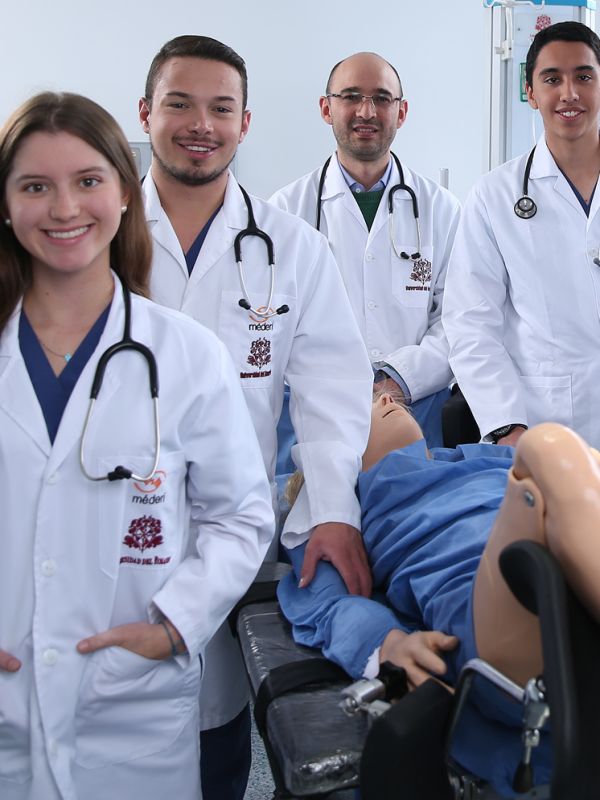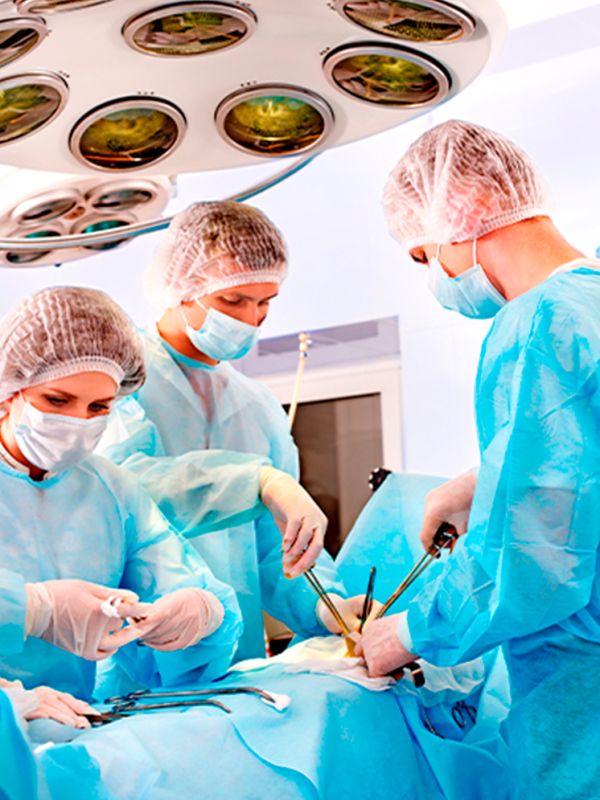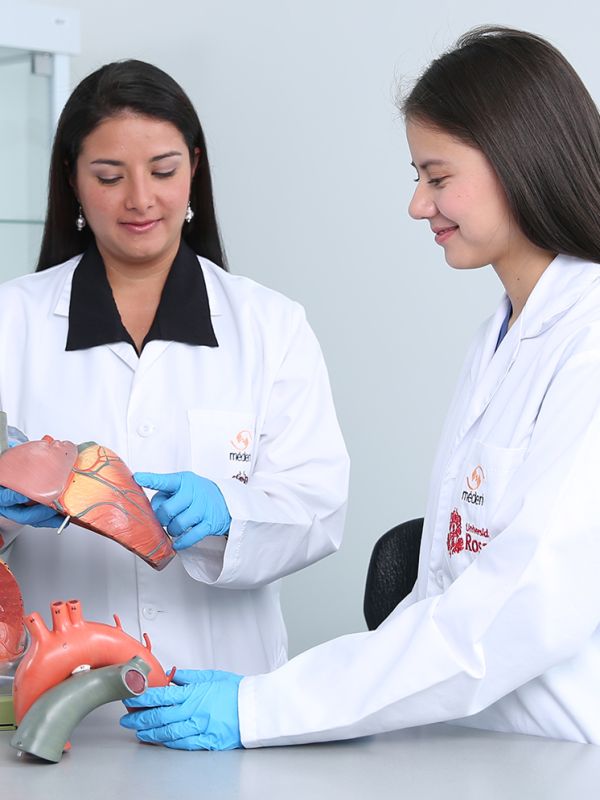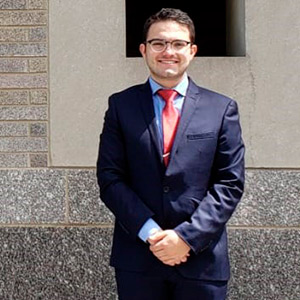

UNDERGRADUATE DEGREE IN
MEDICINE
¿Quieres recibir más información?
PROGRAM
DESCRIPTION
Medicine
The Medicine program at Universidad del Rosario is the country’s oldest, dating back to the university’s founding in 1653. It produced the nation’s first medicine graduate in 1803. In its current phase, the program has been running consistently since 1965, educating excellent doctors.
We offer an innovative, student-centered medicine program. You will learn how to learn, to be independent and self-disciplined, while improving transformative competencies such as teamwork and effective communication with colleagues, patients, and communities. You will be immersed in an education rooted in values and principles, gaining respect for diversity and learning how to deal with uncertainty.
Our students learn through hands-on experiences and conducting research. We want our graduates to be well-rounded professionals, capable of understanding health and disease as a social, cultural and historical process, including biological and psychological aspects. This enables them to solve problems that affect the quality of life of individuals and communities.
Our program is integrated and inclusive and blends scientific, professional, and practical skills. This includes new trivium skills (reading, writing, and critical thinking skills), and the Universidad de Rosario core studies (civility), encompassing biomedical, clinical, socio-humanistic, and population health sciences. This is achieved through Generic and Specific Learning Outcomes, and the continual evaluation of their attainment.
Our program is flexible, with different degree track options in addition to the medical one. These options include: family medicine, medical-surgical specializations, master's of science and doctoral degrees, double degree programs, and other studies.
It is a hybrid curriculum with a strong socio-humanistic component, that incorporates learning mainly through Integrated Learning Activities by Systems (AIAS) based on problem-solving/case resolution, early exposure to hospital and community settings, and involvement in research and sciences.
Our curriculum is relevant as it addresses society’s needs. Thus, it focuses heavily on disease prevention and health promotion through an updated approach to primary care.
*Limited places: registration and enrollment payment for those admitted to the Medicine program is limited to the 140 places authorized by the Ministry of Education for the current period. Similarly, places are guaranteed based on the order of admission and the verification of payments.
- SNIES Code: 1295
- Tuition fees per semester: $ 33.970.000
- 227 academic credits
- Program name: Medicine
- Type of education: University
- Education level: Undergraduate
- Program mode: In-person attendance
- Qualification awarded: Bachelor in Medicine
- Program location: Bogotá D.C.
- Periodicity of admission: Each semester
- Resolution number with effective term: 16067 of August 14, 2017, effective for 7 years
- High-quality accreditation: 10821 of May 25, 2017, effective for 8 years
¿POR QUÉ
ESTUDIAR
Medicina?

CURRICULUM
In order to provide a comprehensive and integrated education, the Medicine program’s curriculum is based on three aspects:
- Shaping good citizens through the Universidad de Rosario’s core studies, the New Trivium (learning to learn, critical thinking, and effective communication), and professionalism (ethics, values, and principles).
- Educating competent doctors by focusing on scientific skills (basic/biomedical sciences, population health sciences, socio-humanistic sciences, and clinical sciences).
- Educating doctors with problem-solving skills (providing them with practical competencies that are applicable at different levels of care).
These fundamental principles are comprehensively covered by our medical program that follows a spiral curriculum, meaning that as you advance through the program, the content becomes progressively more complex and intricate. The program consists of two phases, each lasting three years: phase 1, the preclinical phase, and phase 2, the clinical phase (see diagram).
Phase 1 draws upon the best of traditional teaching methods in medicine, combining them with activities known as Integrated Learning Activities by Systems (AIAS). In these activities, you will study the body’s systems that are essential for sustaining life. In the AIAS, students bring together different topics from the curriculum by analyzing a series of clinical cases that serve as examples for gaining a deep understanding of the health issues affecting individuals and communities from all perspectives.
Phase 2 encompasses clinical rotations, optional specialization modules (those you can choose based on your own interests), and an internship. During year four, students undertake clinical rotations: I Internal Medicine, II Surgery, III Pediatrics and Gynecology, and IV Psychiatry, Otolaryngology, Neurology, and Ophthalmology. These are mainly undertaken within the university’s Méderi Hospital Network and at the Fundación Cardioinfantil. In year five, you may choose to specialize in diverse medical-surgical fields, Family and Preventive Medicine, or scientific research. You will undertake an internship in year six, which is divided between an obligatory clinical semester and another elective/selective internship semester.
Discover the International Elective Internship opportunities for foreign students
Generic learning outcomes School of Medicine and Health Sciences (EMCS) 2017-1
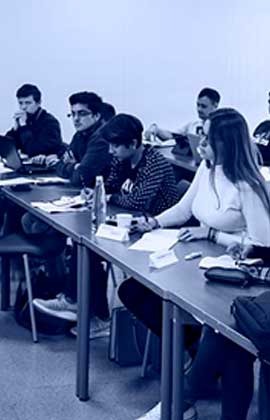
DEGREE TRACK
Options
Coterminal
Your final year of study will be an internship. You may choose to study master's level courses thanks to the coterminal degree track option, or external rotations of your own choice based on the optional specialization module that you have taken.
Professors
The Medicine program boasts a faculty composed of 68 professors associated with the academic program, meaning they are involved in teaching, research and outreach work. They also serve as mentors, providing academic and personal support to students throughout their education. A significant number of professors hold doctoral or master’s degrees, and the majority are specialists.
Furthermore, we have practice teachers present in the different placement settings, as well as approximately 506 clinical teachers (recognized for their academic excellence).
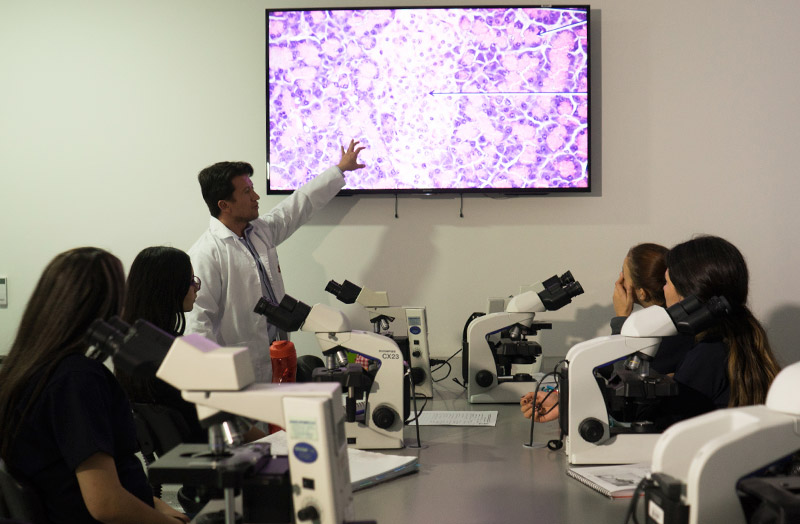
Academic Health System - UR
The Medicine program has an Academic Health System composed of its own network, the Méderi University Hospital Network, which encompasses the Hospital Universitario Mayor, as well as the Hospital Universitario Barrios Unidos. Together, they have approximately 1000 beds. The network includes the Fundación Cardioinfantil, which, at undergraduate level, is exclusively for our students, and at postgraduate level, priority is given to our students. It is recognized for its international accreditation and for being ranked number one in Colombia and among the top five in Latin America. The Salud Total Business Group is also part of the system, along with the Centro Policlínico del Olaya, the Clínica Los Nogales, and the best primary care network in the country (Virrey Solís). It also includes La Paz Psychiatric Clinic, belonging to the San Juan de Dios Hospital Order, the largest mental health center in the country.
Furthermore, we have more than 40 practice settings under Teaching-Practical Agreements in the city of Bogotá.

Prospective student
profile
Because you are incredible!
The medicine program aims to take on empathetic and compassionate individuals, who are capable of understanding the suffering of others, in addition to possessing excellent literacy and logical thinking skills. It is looking for ethical individuals who make decisions based on the best interests of patients and communities, who are willing to work in a team, and who have a vocation to serve others, both during their education and in their professional lives.
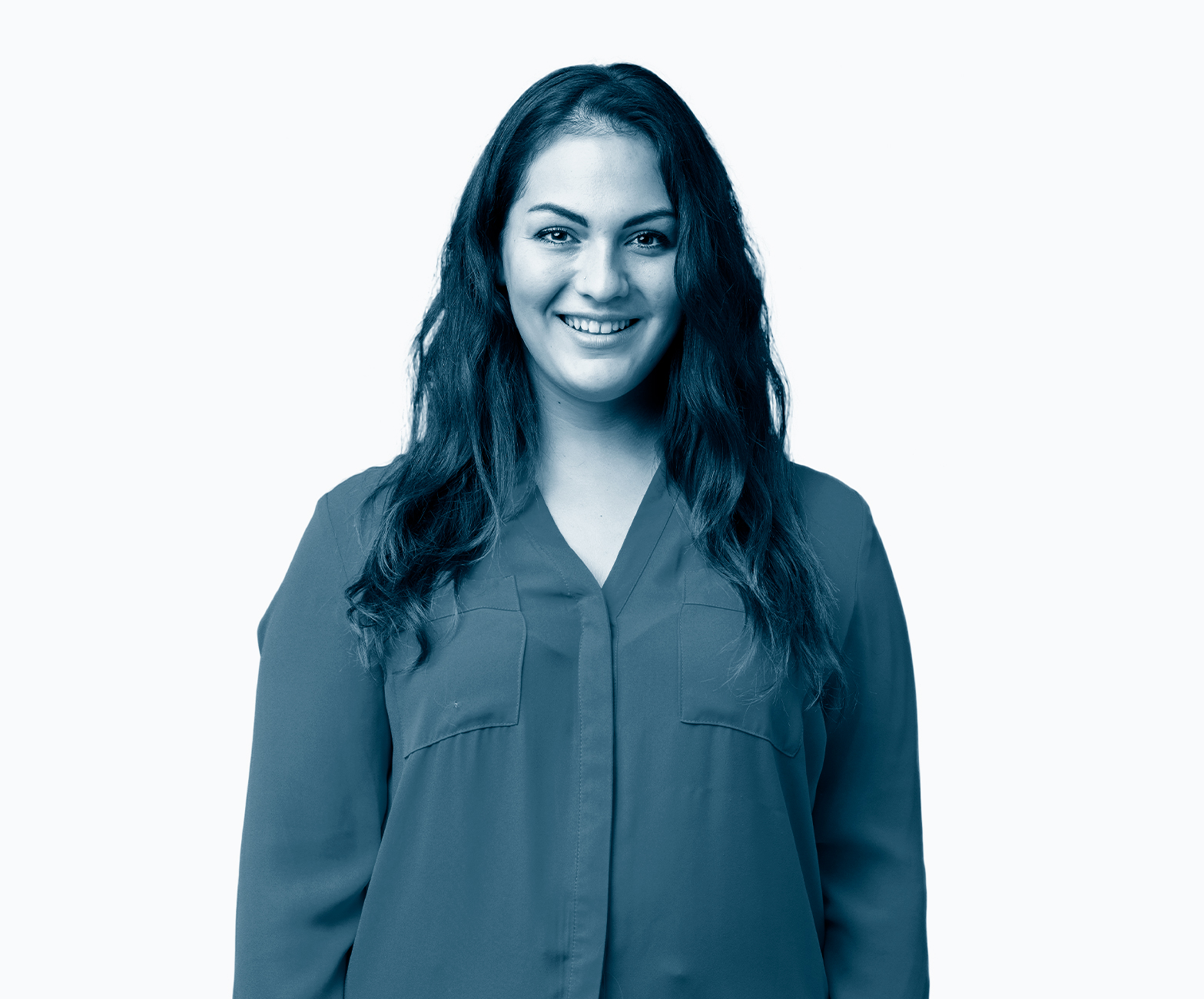
Graduate
profile
We care about your future!
Thanks to their comprehensive education and internship, which can be clinical or elective (such as a researcher in basic, clinical, social, or human sciences), Rosarista doctors can excel not only in clinical and hospital practice, but also in teaching, research, administration, and leadership in policy making, in public or private institutions, both nationally and internationally.
Laboratories
The Medicine program boasts the most advanced infrastructure, equipment, and technology for educating its students. We have a simulation center for safely recreating clinical scenarios using mannequins programmed to represent the most common medical conditions that students will encounter during their clinical rotations. Moreover, the laboratories allow for the practical application of what has been learned in the classroom.
Proceso de
Admisión

LO QUE DEBES SABER
CONOCE LOS REQUISITOS PARA EMPEZAR A HACER DE TUS PASIONES UN SUEÑO HECHO REALIDAD.






